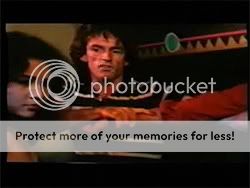Super Dimensional Cavalry Southern Cross is one of those shows which seems to dwell in the greyest areas of anime limbo; The devout fans of the show are few and far between and its legacy as part of Carl Macek's legendary
Robotech has given the show somewhat of a bad reputation. When I was an impressionable youth at the age of thirteen,
Robotech for me was like a breath of fresh air in amongst my quickly dying interest in current television which still persists to this day. This could also explain why my taste in media is not very diverse. Admittedly, the
Macross portion of the show was my personal favourite and I subsequently went on to adore its Japanese counterpart as well as the movie
Do You Remember Love? which currently stands as one of my favourite animated films Japanese or not.
Despite the universal admiration of
Macross, there was little if any fanfare for the middle portion of Robotech created from
Southern Cross. In fact even in Japan, the show was a flop and only through Carl Macek's intervention the show had potential to be somewhat profitable. The history of
Southern Cross is fragmented and sadly little information on the show has been published in and outside Japan, however I will do my best to explain its origins.
Southern Cross was released in 1984 and was the third instalment in the 'Super Dimensional' trilogy of TV shows (which are all unrelated apart from staff similarities), preceded by
Macross and
Orguss. It was the least successful of the three with low ratings making the show last a fraction of its original and much longer intended length at only 23 episodes. It was later adapted and edited as part of
Robotech in 1985 as 'The Masters Saga' bridging the gap between the newly edited Macross and Mospeada story arcs. The unfortunate failure of this show remains somewhat of a mystery as their is next to no information on why it failed. Its a crying shame too, as I believe
Southern Cross to possibly be the most misunderstood mecha show that was released in the 1980s.
The show takes place in the year 2120, mankind has colonized new planets in order to escape from an apocalyptic war that waged during the end of the 21st century. Leaving the Sol solar system, mankind now resides on two worlds known as Liberte and Gloire the latter planet being the setting for the show. Our main protagonists are individuals in the vast Glorian army of the Southern Cross as they face their first great adversary. An alien race known as the Zor prepare for a full scale invasion of Gloire in order to take back the planet of their birthplace which they themselves polluted originally. The main objective of the Zor as well as reclaiming the planet is obtaining a plant which is the race's power source known as the Protozor; despite being technologically advanced they are slowly dying both in a physical and psychological sense.
One of the things that right off the bat seperates
Southern Cross from its contemporaries is that the most predominant protagonists in the show are strong willed military women. Firstly we have Jeanne Francaix a brash and reckless liutenant with a distinctive blonde afro. Throughout the series she grows and matures in character from a likeable if very abrasive girl into a capable and very much mature commander of her squad, the 15th Tactical Armoured Corps.
Secondly we have our resident tough chick with black mullet, Marie Angel once a former biker gang leader now ace fighter pilot. Right from the start of the show she rivals Jeanne in terms of power constantly teasing her ability to command. The most spirited of the three female protagonists, Marie never has quarrels in dealing with airborne alien foes nevermind her notoriety as a 'man-eater' (or Cosmo Amazon if you go by the show).
Thirdly we have duty-bound law enforcer Lana Isavia, another young woman but a high ranking officer in the Gloire Military Police. Defined very much as a no-nonsense spook, she regularly oversees much of the 15th squadron's activities particularly Jeanne and the two have a friendly relationship evern if their ideals however tend to clash on various occasions. Seeing as how distinctive hairstyles are the norm with these women, Lana sports gigantic, waist length blue hair (sometimes green on certain artwork) and a similarly dark uniform with red cape to boot.
The rest of the characters are mainly made up of the rest of Jeanne's budding squadron and tend to fit in with various mecha character archetypes. Firstly we have the youngest cadet Bowie Emerson who would have preferred to be a musician than forced into the military by his calculative father Rolf, one of the chief officers of the Southern Cross. Secondly we have our resident techie Louis Ducasse who comes complete with giant goggles. Charles De Etouard is the groups ladies man and Andrjz Slawski is the experienced, muscular giant of the group often being bewildered by Jeanne's actions.
Behind the scenes of the war with Rolf is the stubborn supreme commander of the Southern Cross, Claude Leon a man who would never risk giving up Gloire and wishes to annihilate the Zor at all costs. Later on in the show we are also introduced to a soldier hypnotized by the Zor and used for their own ends as a spy named Seifriet. He begins his role in the show as the main commander of the Zor mecha known as the Bioroids, interestingly enough his Bioroid colour is red similar to Char Aznable's Zaku in the original
Mobile Suit Gundam which might have inspired the mecha designers. After failing numerous times in dealing with the Southern Cross, Seifriet is sent down to regain his former memories and infiltrate the planet unwillingly extracting data for the Zor commanders. After forming a close relationship with Jeanne, he eventually seeks revenge against the Zor for their experiments and endangering the Glorian populace. Along with Jeanne, Seifriet is undoubtedly the most developed character of the series and could be considered the show's tragic hero. Even though his purple glam rock hair will never be taken seriously.
In terms of the protagonist character development,
Southern Cross is admittedly a little mixed in this regard. Jeanne, Marie and Lana are mostly well developed throughout the show playing off one another well. Each of them were for the time unique in that they were military women in control rather than on the sidelines catering to the male characters. In particular these characters grow in personality so that by the end they have become different people by the end of the conflict. Although Jeanne gets the spotlight more here than her rivals. The other characters while mostly on the side are interesting in how they react to Jeanne's actions even if some of the characters aren't very three dimensional. For example, Bowie as the youngest cadet over time seeks counsel with Jeanne in a relationship similar to that of two siblings. However along with the relationship between Jeanne and Seifriet, Rolf and Claude also form a rift in ideals. Rolf on one hand is a tired military general who wants to end the war without resorting to brute force and wishes to learn more about the Zor. On the other hand Claude believes that the protection of Gloire means the utter destruction of the Zor.
The Zor themselves also have a few main characters at their side, however I thought I would explain as to what makes them alien. In terms of design they are your standard humanoid aliens characterised by pale skin and odd coloured hairstyles; a common feature in most space opera anime. Their main distinction from the humans however is that each Zor has two clones of themselves and thus they act as a trinity; each Zor has a role within the trinity that if broken would cause a psychological collapse. These attributes are: decision, action and information. Firstly we have the Zor commanders who resemble elderly monks, they are unemotional and draconian ceasing to care about anything other than their races survival. The commanders also have various assistants that are mainly scientists once again striking odd designs and many of them are androgynous adding to the alien aesthetic. In fact as observed by the human characters, the Zor architecture is very much akin to a blend of alien cybernetics and ancient Rome right down to the various coliseums and civilian robes. Going back to the characters, the last main Zor character is a young, green-haired female named Musica who naturally has two identical sisters named Musiere and Muselle. As the name obviously implies, Musica is a musician for the Zor who at one point meets Bowie and falls madly in love with him creating an all important relationship between the Zor and the humans.
The overall design in
Southern Cross is pretty unique as well as inspired and innovative. The mecha designs were created by a first-time studio called Ammonite who before only worked on television commercials; some of their concepts are interesting if pretty flawed in parts. For example, the Spartas hovertank is probably the best one of the bunch, transforming from a tank, to a gun emplacement and finally a robot form. The Spartas in general is like a futuristic chariot, bulky but by the same token articulate and powerful. However the lack of a cockpit for pilots has always puzzled me. Same can't be really said for the first few Space Corps fighters, the first type is just your average space fighter with no transformation and the other jet is the Logan which can only be described as a flying boat. It has a guardian mode but it looks incredibly goofy, later in the series it is replaced by the far better if also rather implausible space helicopter vehicle the Auroran. There are other mecha sprinkled throughout the armies of the Southern Cross such as reconnaissance mecha like the Salamander and GMP units which look similar to designs from
Votoms and
Gundam.
The Zor have less variants in mecha but their main mecha the Bioroids have various forms. Aesthetically as stated before they look not too dissimilar to biomechanical Zakus complete with bulging robo muscles and cockpits with breathing apparatus. They even come with a hoverboard for transport adding to their arsenal. As the show goes on especially towards the end, the Bioroids change models increasing their power and enhancing their pilots. Unlike human vehicles, bioroids are powered through their pilots transmitting their thoughts through the mecha's nervous system. The Zor also have pretty much one kind of ship, an enormous vessel which is like a mile long metal slab that is almost impenetrable as well as a magenta coloured bioroid carrier.
However arguably the best part of
Southern Cross's design is the incredibly nifty and badass personal armours for the soldiers (also referred to as Arming Doublets). The army of the Southern Cross is split into several divisions from the Armoured Tank Corps, Space fighter pilots, Police officers and even marine troopers however many of the divisions outside of the main characters are rarely seen but can be found in a lot of related artwork. The armour comes across as a form of futuristic samurai uniform right down to the feudal looking headcrests and helmets on some of the outfits. Originally
Southern Cross was supposed to be more of a space opera based in a futuristic version of feudal Japan so you can see where the inspirations for the personal armour came from, many of
Southern Cross's more elaborate designs that were abandoned would be featured subsequently in
Robotech art books based around the aborted series
Robotech II: The Sentinels. As well as that some of Ammonite's work on
Southern Cross and ideas for
The Sentinels were also used in the
Zillion anime series.
The character designs by Hiroyuki Kitazume (
Gundam: Char's Counterattack) and Tomonori Kogawa (
Ideon, Dunbine) once again are strange but well drawn and are memorable because of how odd some of them are. This can include Jeanne's puffy blonde afro, Marie's scruffy mullet and Lana's elegant blue wave of hair. Characters are decently proportioned so that like most good character designs kee p their shapes semi-realistic without being too lifelike nor too cartoony. No crazy post-2000 watermelon breasts here. The animation for an early 80's mecha show is mostly consistent in quality and in some parts looks rather smooth; out of the three shows that helped to create
Robotech,
Southern Cross was probably the best looking.
Now in terms of plot,
Southern Cross is relatively slow moving; in fact this appears to be one of the main reasons why a lot of mecha fans have distanced themselves from the show. However I believe the slow pace actually helps the story rather than hinders it; this allows more room for the rather large cast of characters to be likable enough that you care for them. In fact one of the main reasons why I enjoyed
Southern Cross was because of how likable the characters were and that there was far more emphasis on the planning behind the war rather than sacrifice the details for more action and fan service.
That does not mean that
Southern Cross lacks action (there are several shower scenes in the early episodes aswell), as there is a decent amount and the last few episodes in particular have several large scale space fights. In terms of plotting and characters,
Southern Cross actually bears many similarities to Mamoru Oshii's
Patlabor in terms of laid-back but interesting characters as well as a ponderous yet intriguing story.
Another reason why I found Southern Cross interesting was that while the show starts off with several comedic touches, the overall narrative becomes rather dark and dare I say bleak. Many of the battles in the show have massive body counts and as the story progresses, it is obvious that our protagonists are fighting a losing war against a dying yet technologically superior race.
However the main flaw of
Southern Cross is quite simply it's length, particularly the ending. Now this is due to the show having low ratings to begin with and unfortunately leading to an early end. Because of this, certain plot points along characters are only expressed and explained in minor detail or analysed to quickly. Examples of this include the orgins of the Zor and Lana's relationship later on with a pilot named Brown. The ending which I admit felt rushed at points was not necessarily bad, more bittersweet than anything else. It was the kind of ending that while in some ways was satisfying, it's bleak atmosphere made me want to learn more about the fates of the characters (which in my eyes, is one of the signs of a good drama).
As stated before,
Southern Cross was edited heavily in terms of plot in order to fit as the Masters Saga in the
Robotech chronology. Apart from the standard name and sound changes, the overall plot was changed drastically to fit in resulting in numerous plot holes and quite frankly odd ideas. For example the character of Seifriet instead of a kidnapped human spy, is now a clone of the creator of Protoculture (see the
Macross Saga part of
Robotech) and Robotechnology known as Zor. The Zor are mainly referred in the
Robotech chronology as both the Robotech Masters and Tirolians and come from a different planet altogether as Gloire in Robotech is considered to be Earth.
Many of these plot points clash with
Southern Cross's animation which makes the narrative feel jumbled and confused. (While considered non-canon, the
Robotech novels iron out a lot of the animation deficiencies). However a lot of the sombre atmosphere and well established charactes are still present in the
Robotech version. The
Southern Cross portion of
Robotech in its animated form is a good transitional chapter however it does not hold up especially well on it's own. Even after that though,
Southern Cross was used again by Carl Macek in 1986 when Cannon Films requested he would splice footage of the show with
Megazone 23 Part 1 to create the rare and often hated
Robotech: The Movie. But that's another story.
Little merchandise came out of the show in Japan apart from one artbook and a few model kits that are now growing fairly scarce; the
Robotech toy line by Matchbox though did manage to have a small selection of the mecha including the Spartas and Bioroids. There has been no sequels or related OVAs produced after the original show. Only small continuations of the
Robotech story with
Southern Cross characters can be found, specifically some of the comics including the Invid War and Antarctic Press published series.
Even with all its flaws,
Southern Cross is a show that I personally have a huge soft spot for. If I had the chance to finish one show that was canceled, it would be this one. The plot to me is one of the better and more engrossing examples in the medium; as well as that the characters and themes that run through were rather unconventional for the time and still hold up surprisingly well for me. At times for me the show even felt ahead of its time in its design and narrative execution. Like Macross, I even felt the romantic elements worked well with in the narrative too. Put simply it may not be a masterpiece, but to me is a misunderstood relic that begs to be rediscovered. I am not afraid to say it, I adore
Southern Cross.
- Characters with funky hair: 4/5
- Transforming hovertanks: Badass
- Chances of otakus giving it another chance: Sadly not likely
-Oli, 03 January 2010 (original date)
Review source: US DVD
Screenshout source: US DVD

















